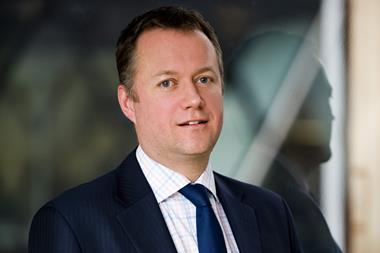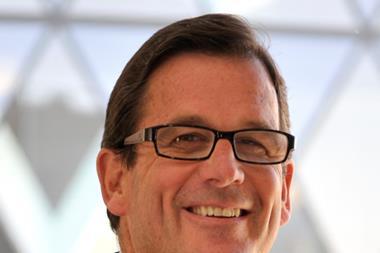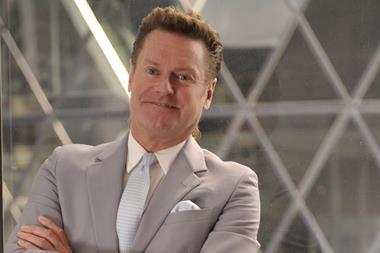Kendrick highlights the insurer’s challenges for 2014 and where its growth will come from
ACE’s EMEA president spoke to StrategicRISK’s sister title GR about trends, competition and role models
What will be the biggest challenge in 2014 for ACE in EMEA?
A lot of the challenge for any insurer in this region right now is around growth. Looking at the regulatory environment, market environment, economic environment, all present challenges to growth. Now at ACE, we don’t grow for growth’s sake, we grow profitably, and it is difficult to find growth in these conditions. You will never get underwriting absolutely right, but at ACE we feel more confident about the way we are approaching the business today than we ever were. We think we have a relatively good level of confidence about understanding our margins. So the second challenge, once you’ve accomplished that, is: how do you grow?
You look at mature Europe – for example UK, France, Germany, Spain, the Netherlands. It is very difficult to grow in those countries. Economies are tough, market conditions are very competitive and regulation is increasing in all of those countries. But with the right mindset, you can still find growth. What have we done at ACE? In the past nine years, we’ve gone into 10 or 11 new countries.
You look at Russia, Hungary, the Czech Republic, Turkey, Dubai, Bahrain, Tunisia, for example. We’ve gone into all these countries, and now they are beginning to flourish. Some businesses are more mature than others. But what’s happening now is the investment we made over all those years is coming to fruition. Most of those businesses are growing at rates easily into double digits. Some beginning with two, some beginning with three. We are seeing terrific growth in a lot of these countries. If you’re just confined to operating in London though, man, that’s a tough way to try and deliver this type of growth.
Where will growth come from for ACE next year?
Emerging markets is one, but also emerging products. We will get growth from emerging liability products as litigation increases, we will see growth as concerns around areas such as nanotechnology, environmental pollution and cyber risk increase.
Also, to some degree, we will go back to traditional product emergence. Take D&O. If a board of directors is going into a new country, with new exposures, they need to be absolutely on the money about doing the right thing, as otherwise there will be a shareholders’ suit. So we will see an increased emphasis on the importance of certain traditional products that have been around for some time, as globalisation and new ways of doing business increase.
How can insurers best differentiate themselves given tough competition?
If you went back in history, insurers would have said it is very hard to have sales and underwriting operations that both perform well. Sales is all about volume, getting out there, selling products and, most important of all, understanding how to service your clients. Underwriting goes back to making margins and protecting your balance sheet. Now, it is imperative to do both, and to do them both well. You get those two right, and while you may not be totally differentiated from the rest of the market, it puts you up there.
Who do you most admire in the industry, and why?
There are two people I admire most. One is Evan Greenberg, chairman and chief executive of the ACE Group. He is certainly the smartest insurance guy I’ve ever come across. He’s just a smart guy generally, indeed you don’t get to the board of Coca-Cola as a non-executive director for nothing, and that’s another example of his roundness and capability for immersing himself in all things.
His attention to detail and ability to think in a forward fashion, or “conceptualise” as he calls it, is remarkable. And he will drill down very deeply into the company if he wants to find out an answer to a question. He has a great depth to him, and for that I admire him very much.
I would also put Sir David Rowland in that category, the man who was at the helm of Lloyd’s during its reconstruction and renewal. For those that aren’t already in the know, Lloyd’s was close to going under. I couldn’t say it was a single-handed effort on his part, but he deserves to take a great deal of the accolade for saving Lloyd’s. This was an institution that I’ve founded my career on, and it is still a part of my life. He led Lloyd’s tremendously at a difficult time, and kept a vital institution alive when it was near death. That was an amazing feat that he very much helped to pull off – and look at where Lloyd’s is today, it’s in great shape again.
What do you know now that you wish you had known when you started in the industry?
Quite simply, I wish I had understood from the start the importance of taking action to remove underperformance. I’m a great believer in giving people a second chance, provided there is a reason – it doesn’t involve dishonesty, it doesn’t involve gross incompetence, or anything like that. People make mistakes and it’s important that when they do, they learn from them.
However, tolerating mediocrity means keeping people in a job that aren’t really pulling their weight, and not contributing to the company’s success as much as their colleagues. If maybe sometimes one isn’t tough or swift enough to act, then it perpetuates a set of circumstances that mean the company isn’t performing at its best. In addition, it lets down all the other people that are working hard or better at their jobs.




















No comments yet